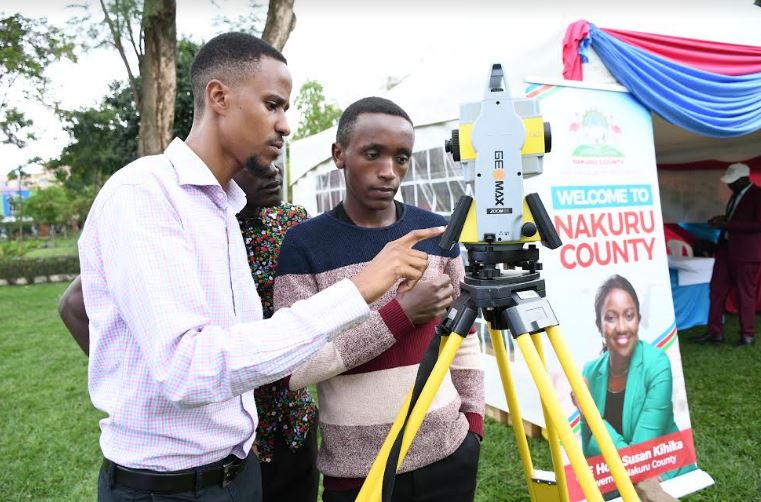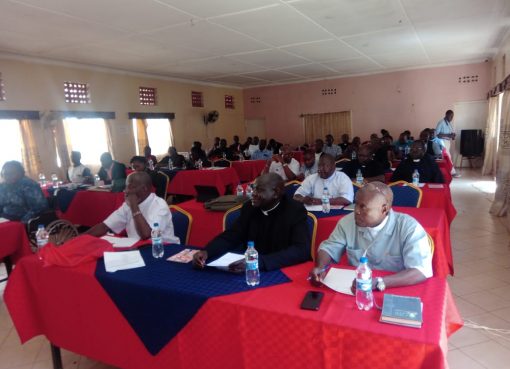Nakuru Deputy Governor David Kones has called upon County Departments to embrace the Geographic Information System (GIS) technology for informed evidence-based decisions in project implementation.
Kones, who led the County’s Planners, Surveyors, and Geo-Spatial Planners in showcasing the various technologies as they marked GIS Day, noted that the system was better placed to advise policymakers, including planners, and the community on where to set up schools and health centres, among other land use needs.
GIS Day is an annual event that celebrates the advancement of GIS technology while uniting the GIS community of professionals and students to showcase the diverse applications of spatial technology in storing, visualising, analysing, and interpreting geographic data.
“With the mushrooming grabbing of public land, the GIS technology will also help in securing public land, planning urban areas, and improving revenue collection and allocation,” added Kones.
Nakuru is among the few counties that have launched the Spatial Development plan, whose speedy adoption of GIS technologies, Kones said, will help in its implementation.
“This blueprint for resource management is GIS-based, in compliance with constitutional requirements, and swift adoption of the Geo-Information System marks a significant milestone as the county embarks on its implementation,” he added.
The members of the public had a chance to learn from various departments that have used these technologies, including UN-FAO, the Kenya Institute of Planners, the Kenya Institute of Surveyors, the Kenya Urban Roads Authority, the Kenya National Highways Authority, and the Nakuru Water and Sanitation Company, among others.
Nakuru County Assembly Chair Peter Palang’a, of the Lands and Planning Committee, highlighted the need to harmonise data on land for planning purposes.
“We will support the moves by the county to digitise all information in the county to inform the timely implementation of plans while controlling development in various towns,” calling on the county to pool funds towards setting up a GIS Centre.
Palang’a noted that the county spatial plan needed to be cascaded downwards to inform annual plans as well as the county integrated development plans for speedy implementation.
By Anne Sabuni




